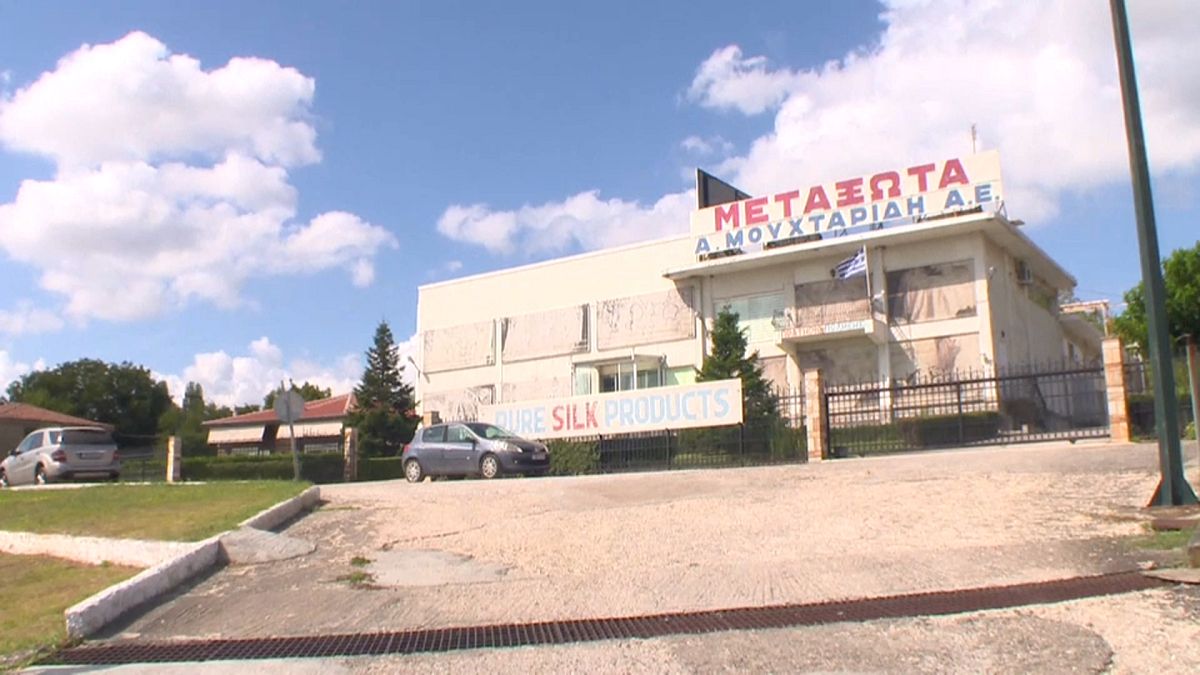After the financial crisis almost brought its centuries-old silk industry to an end, Greece's economic recovery has seen demand for fashion products revived.
Greece's financial crisis almost brought its centuries-old silk manufacturing industry to an end.
But economic recovery has seen demand for fashion products revived and business is booming again.
At Kostas Mouhtaridis' remote factory near the Turkish border, the non-stop "clunk-click" of the weaving machinery is a welcome sound.
The factory in the town of Soufli is a few hundred metres from the Evros River that forms Greece's natural border with Turkey in one of Europe's most heavily militarised areas, patrolled constantly to deter illegal immigration into the EU.
The town had already suffered a heavy blow when cheaper Chinese and Indian silk flooded the market in the nineties. The companies which managed to survive then were later finished off during the financial crisis.
There were only two silkmakers left in the town by 2012, eking out an existence by supplying small home furnishing stores.
Seven years later, Mouhtaridis has few complaints. The company founded by his father in 1977 has been revived by Greece's resurgent fashion and luxury goods businesses as well as technology that favours small-scale producers.
"The situation in the production of silk at Soufli for the past 20 years was that we made textiles and yarn and gave them to the domestic market, to Greece. We gave them to stores that took 5, 10 metres, 50, or maximum 100 metres in the case of big clients," says Mouhtaridis.
He now produces more than 200 times that amount annually for his largest customer.
Silk is the staple product at Zeus + Dione, a luxury Athens label that prides itself on reinventing and incorporating laboriously made elements found in traditional Greek garments into its women's line.
Craftspeople were scouted in rural areas around Greece to make it happen, injecting some glamour to dying trades that typically struggle to connect with city dwellers.
The label's flagship store is on a high-price shopping strip in central Athens, while the company's co-owner, bank executive Mareva Grabowski, is married to newly elected conservative Prime Minister Kyriakos Mitsotakis. She founded the company with her friend Dimitra Kolotoura, a former PR executive.
The appeal of Zeus + Dione's formula was not instantly obvious. Kolotoura remembers walking into Mouhtaridis' silk factory as her company was just starting out seven years ago.
He was sceptical when asked for 20 metres of "spathoto" – an embossed silk that has become the firm's signature fabric.
"We said, let's start the engines. We are going to produce, we are going to weave, we are going to create new fabrics, we are going to experiment. Basically, we gave life to what was then a very quiet town," Kolotoura says.
The twist on tradition caught the attention of the fashion world and orders from overseas snowballed. Silk shirts and caftans made from spathoto and Amalia-motif fabric types can be found on sale in Los Angeles, Paris and London and elsewhere.
Kolotoura says: "We are selling from Tokyo to California, they appreciate it, they love it, they know its genuine, they know how it's been done basically. Because it's not automated, it's not done somewhere in China, we know who's weaving what."
